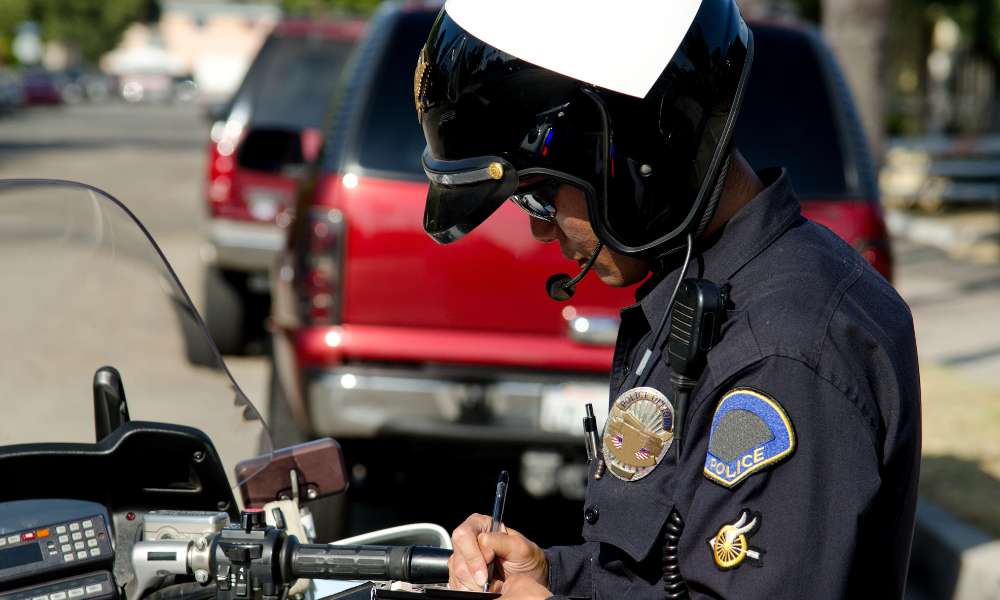In the Philippines, only the Land Transportation Office (LTO) and officers deputized by the LTO have the legal authority to confiscate a driver’s license during a normal traffic violation. This includes specific members of the Philippine National Police (PNP), the Metropolitan Manila Development Authority (MMDA), and local government unit (LGU) traffic enforcers—but only if they have been formally deputized by the LTO.
Understanding who has the legal right to confiscate your license helps protect motorists from abuse and ensures that traffic laws are enforced properly. Let’s explore the legal foundation, involved agencies, and what motorists should know.
The Legal Framework Behind License Confiscation
A. Republic Act 4136: The Land Transportation and Traffic Code
Republic Act No. 4136, also known as the Land Transportation and Traffic Code, is the primary law governing land transportation in the Philippines. It clearly assigns authority over driver’s licenses to the Land Transportation Office.
According to this law:
- Only authorized LTO officers and their duly deputized agents may confiscate a driver’s license.
- Confiscation may only happen in the event of a valid traffic violation.
B. The Central Role of the LTO
The LTO is the government agency tasked with:
- Issuing and regulating driver’s licenses
- Enforcing traffic laws
- Confiscating, suspending, or revoking licenses when necessary
In short, the LTO is the only agency directly empowered by law to perform these functions. Others may assist, but only under strict conditions.
Deputized Officers: Extending LTO’s Authority
A. Who Can Be Deputized?
To increase enforcement reach, the LTO deputizes select officers from other agencies. Deputation means that the LTO officially authorizes them to act on its behalf.
These may include:
- Philippine National Police (PNP) officers
- MMDA enforcers
- LGU traffic enforcers
However, not all officers from these groups are automatically deputized. Deputation requires:
- Official training
- Issuance of a deputation order
- Adherence to LTO rules and policies
B. What a Deputized Officer Can Do
A deputized officer has the authority to:
- Issue traffic violation tickets (TOP – Temporary Operator’s Permit)
- Confiscate a driver’s license in cases such as reckless driving, use of an expired license, or other LTO-specified violations
If the officer is not deputized, they are not legally allowed to take your license.
The Role of MMDA and LGUs
A. MMDA’s Enforcement in Metro Manila
The MMDA plays a key role in managing traffic within Metro Manila. However, according to the Supreme Court, MMDA officers:
- Can enforce traffic rules
- Can issue traffic violation receipts
- But CANNOT confiscate driver’s licenses unless deputized by the LTO
In the 2008 case MMDA vs. Garin, the Supreme Court ruled that the MMDA has no inherent police power, and its authority to confiscate licenses depends on LTO deputation.
B. Local Government Units (LGUs)
LGU traffic enforcers enforce local traffic ordinances, but this doesn’t automatically grant them the power to confiscate licenses. Like the MMDA, they must also be:
- Trained by the LTO
- Formally deputized
Without deputation, any license confiscation by LGU enforcers is considered unlawful.
Supreme Court Decisions and DILG Guidelines
A. Supreme Court Rulings
The Supreme Court has clarified several times that:
- Traffic enforcement alone doesn’t give an officer the right to confiscate licenses
- Only those with legal deputation from the LTO have that authority
This prevents abuse and ensures a uniform traffic enforcement system nationwide.
B. Department of the Interior and Local Government (DILG) Memorandums
The DILG has issued memorandums instructing LGUs and other agencies to:
- Respect LTO’s exclusive authority over licenses
- Refrain from confiscating licenses without proper deputation
This was highlighted in 2018 when the DILG reminded LGUs that traffic enforcers must not confiscate licenses unlawfully, helping protect motorists from excessive penalties or misconduct.
Protecting Motorists’ Rights
A. How to Identify Authorized Personnel
If stopped for a traffic violation, motorists should:
- Ask for the enforcer’s name and ID
- Request to see their LTO deputation credentials
- Take a photo or video (if needed for your safety)
Only officers who show valid deputation papers from the LTO have the authority to confiscate your license.
B. What to Do If an Unauthorized Officer Confiscates Your License
If your license is confiscated by someone who is not deputized:
- Politely refuse and explain that only LTO or deputized officers have that authority.
- Request a citation ticket (TOP) if needed.
- File a complaint with the LTO, DILG, or PNP Internal Affairs.
Know your rights and don’t be intimidated—always stay calm and cooperative.
Frequently Asked Questions (FAQs)
Q1: Can a barangay tanod confiscate my driver’s license?
A: No. A barangay tanod does not have any legal authority to confiscate a driver’s license, unless they have been officially deputized by the LTO—which is very rare.
Q2: What should I do if my license is confiscated by an unauthorized traffic enforcer?
A: Politely request to see their deputation credentials. If they can’t show them, you may refuse to surrender your license and report the incident to the LTO or DILG. Always document the situation for your safety.
Q3: Can MMDA enforcers legally confiscate my license?
A: Only if they are officially deputized by the LTO. Otherwise, they are limited to issuing violation receipts. The MMDA, by default, does not have confiscation authority.
In Summary
Understanding who has the authority to confiscate your driver’s license during a normal traffic violation is essential for every Filipino motorist. It not only protects your rights but also holds traffic enforcers accountable to the law.
- Only the LTO and its deputized officers have the legal right to confiscate licenses.
- Always ask for deputation proof before surrendering your license.
- Report unauthorized confiscations to protect yourself and fellow motorists.
Stay informed, drive responsibly, and know your rights on the road.

